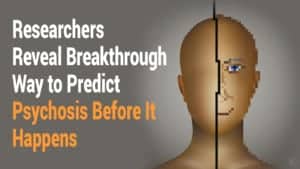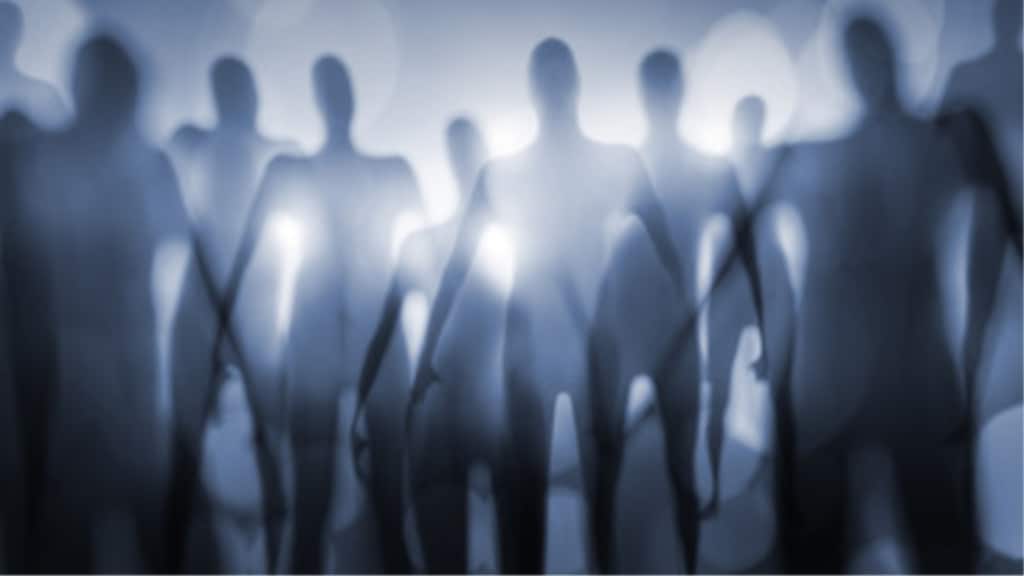Delusions are a firmly held belief in something untrue. The thought remains even when a trusted friend or loved one provides incontrovertible evidence to the contrary.
For instance, if someone utterly believes that a troupe of trolls lives in their mattress and steals food at night, they have a delusion. Perhaps you rip open their bed to show them that there are no trolls. They still will not believe you.
The term delusional disorder has ruled the hallmarks of insanity for centuries. Delusion may come with many different mental and neurological disorders and present differently from person to person. They are challenging to treat.
Someone suffering from delusional disorder usually can function reasonably well in day-to-day life. If you know someone struggling with them, it can be very frustrating and concerning. These ten signs to watch out for can help you determine if someone you know is dealing with delusions so you can try to get them the aid they need.
10 Signs Someone Has Delusions
1. Hallucinations
A delusional disorder itself is not usually accompanied by hallucinations, although it can be. According to Harvard Medical School, hallucinations typically occur concerning the delusion. For instance, a delusional conviction that someone is attempting to poison you may cause sensory hallucinations as well. You may hallucinate that you smell or taste something in your food and water.
Deluded ideas do not only occur when an individual has a delusional disorder. Most often, if a person is dealing with delusion and hallucinations. Indeed, it is a symptom of another mental disease most often. Conditions such as schizophrenia may cause a person to experience both.
Someone who is experiencing a hallucination has a sensory event happen that no one else around them can detect. A visual illusion involves them seeing something no one else can, or an auditory one impacts their hearing. To the afflicted individual, the event is genuine, even though no one else senses it happening.
 2. Irritability or anger
2. Irritability or anger
For the person dealing with delusions, the idea is real and a part of their life. Often other people not understanding their delusional belief will irritate them. Since it is a reality in their mind, it should be one to you, too.
Other times, the delusional person becomes angry and irritated because of the effects of their delusion. One type of illusion, persecutory delusion, causes the afflicted person to believe others are out to get them. They may adopt a “me against the world” mentality to combat the persecution they think they are experiencing.
This study that was published in the Schizophrenia Bulletin found that the type of delusion is a determiner of anger and violence. A person who believes that they are followed, spied upon, or experimented upon is much more likely to be angry or violent. In their mind, it is merely self-defense because they are genuinely convinced others are doing them harm.
3. Depression
Many people with delusions are well aware that other people don’t believe or understand them. Knowing that no one relates to them and their experiences can be very difficult for them and cause depression. Even though they realize that no one is experiencing the same thing, it is not enough to break their off perception of reality.
Depression takes on several forms; if you notice any of these symptoms of depression, don’t ignore them. Depression can lead to an increased chance of self-injury. A person suffering from delusion and depression is at an even higher risk of self-harm.
If you notice depressive symptoms in a loved one dealing with delusions, empathy can be a powerful tool. Treating them with gentleness and understanding can help prevent the worsening of associated symptoms like depression. You have to remember that they cannot recognize the falsity of their ideas.
4. Withdrawal from family and friends
Hand in hand with depression comes the need to retreat. As the person dealing with delusions falls deeper into the path the delusion takes them, the more they get pulled away from those close to them. This is especially true when the delusion is causing paranoia, as in those who are convinced they are being watched or followed.
Just like helping a loved one deal with depression, love and compassion are critical if the delusional person is pulling away. Their need for a support system is vital. To help prevent their withdrawal, try to be accessible and understanding when they talk to you.
Remember, being understanding is not the same as validating their delusion. You do not have to pretend they are right to help them feel cared for. Just allowing them to vent their feelings can be enough to let them know you’re on their side.
5. Narcissistic behavior
Delusions of grandeur are one of the most widespread delusion categories. You might witness their genuine belief in amazing, super abilities, or specialness. Narcissistic tendencies can unfold from these ideas.
A narcissistic person thinks they deserve special treatment and that they are always the victim in an unpleasant situation. For example, if a narcissist picks a fight with you and you choose to defend yourself, they will only tell others about how you attacked them. Their whole perception of life is skewed and centered around themselves.
6. Nervousness and anxiety
Persecutory delusions can cause genuine fear and anxiety in the afflicted person. Because they believe others are out to get them, they feel an intense need to defend themselves or to hide. The more intense the injury they perceive, the more their anxiety is amplified.
If you notice someone you love who begin to hide, close their curtains during the day, or look over their shoulder when they’re out, they may have a persecutory delusion. Please note, this is not a delusion if someone genuinely is stalking them, and they are afraid. In the case of the deluded soul, it is a fragment of their imagination that someone is watching or following them.
Recognizing the symptoms of anxiety can help you understand your loved one, who is stressed by their imagined troubles. Moreover, the snowball effect of their mental disorder and anxiety can make things even worse.
7. Schizophrenia diagnosis
Schizophrenia and delusional thinking go hand in hand. More importantly, schizophrenia and other similar mental disorders prevent the person from perceiving reality as it truly is. It is easy to see how this leads to a spike in delusions.
Deluded ideas are a hallmark symptom of schizophrenia. Knowing a person has a diagnosis of schizophrenia or another mental disorder means you should be on the lookout for any of these other red flags. The chances are excellent that they will suffer from one or more delusions.
8. Unusual behavior
Living in a world that is different than reality, the deluded person may carry on discussions that are outlandish to you. This is the impact of their unique delusion. It makes sense only to them, as it relates to their idea.
Also, easily noticed with delusions are odd behavioral patterns. For instance, a person who is convinced that they are the victim of spying may begin a paranoid examination of their house every night looking for proof. In their mind, it is entirely rational to toss their home looking for microphones and cameras.
9. Larger than life stories
Delusions that are grandiose or persecutory are especially likely to cause this symptom. The afflicted person may tell you entirely implausible stories, such as Kate Middleton is stalking them. The more utterly convinced of this bizarre idea they are, the surer you can bet that they have a delusion.
Remember, this is not the same as lying. People lie with the intention to deceive the listener. The delusional person is quite sure of the truth of what they are telling you, even though you know it is false. In other words, the person with delusions believes that they are relaying a true fact.
10. The person remains convinced after you show them the truth
The final indicator of someone suffering from delusions is their absolute commitment to the story. If you can’t shake them from their belief, no matter what they’re told or shown, they have a genuine delusion. Moreover, no intervention or discussion on your part is ever going to change their mind.
It is important to note that religious beliefs that others in a community or culture share are not delusions, even if they are not right, per se. You should not consider someone as delusional if they have a different religion or social outlook than you do. These convictions run very strong and are a normal aspect of human nature.
Final Thoughts: What can you do to help a person struggling with delusions?
Does someone you know exhibit these red flags, and you feel the need to aid them? Then proceed cautiously. Be careful about how you approach it. The delusional person is not entirely rational. Thus, they will likely feel misunderstood or attacked.
The best thing you can do for your loved one is to be compassionate. Further, encourage them to seek support from a trained medical professional. Finally, let them know you’ll be there every step of the way.
















 Community
Community

